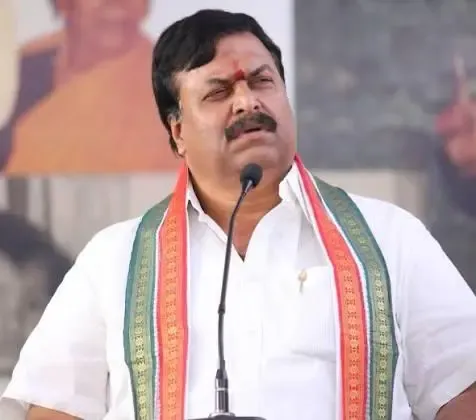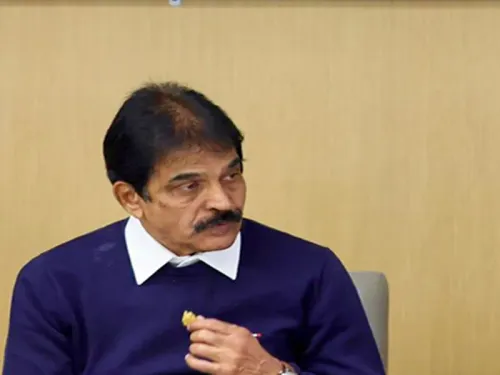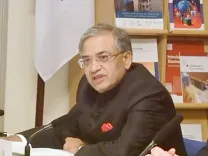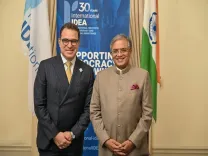Are Developed Countries Meeting Their Climate Commitments?

Synopsis
Key Takeaways
- Li Qiang calls for developed nations to uphold climate commitments.
- Emphasis on global cooperation to tackle climate change.
- China's role in promoting economic growth highlighted.
- Initiatives announced for talent development among BRICS countries.
- Opposition to unilateralism is crucial for global stability.
Rio de Janeiro, July 8 (NationPress) Chinese Premier Li Qiang has called on developed nations to uphold their climate obligations regarding financing, technology transfer, and additional areas.
He urged the global community to effectively implement the United Nations Framework Convention on Climate Change and the Paris Agreement, emphasizing the principle of common but differentiated responsibilities.
Li expressed these sentiments during the plenary sessions of the 17th BRICS Summit held on Sunday and Monday, advocating for enhanced global collaboration in combating climate change, as reported by Xinhua.
Furthermore, Li highlighted the necessity of fostering an open world economy and stressed the significance of opposing unilateralism and protectionist measures.
He also pointed out the importance of maintaining the stability and efficiency of industrial and supply chains.
The Chinese Premier asserted that China possesses ample resources and capabilities to mitigate adverse external effects and is confident in its ability to promote stable and healthy economic growth.
During a meeting with World Trade Organization Director-General Ngozi Okonjo-Iweala on the sidelines of the summit, Li announced that China would implement more measures for voluntary and unilateral opening up, as reported by Xinhua.
On Sunday, Li stated that BRICS nations should aspire to lead the reform of global governance, emphasizing the need for the bloc to safeguard world peace and encourage peaceful dispute resolution.
The summit was attended by leaders of BRICS countries, presided over by Brazilian President Luiz Inacio Lula da Silva. Li noted that unprecedented changes are rapidly unfolding globally, challenging international rules and order while undermining the authority and effectiveness of multilateral institutions, according to Xinhua.
Li referenced the vision for global governance articulated by Chinese President Xi Jinping, which focuses on extensive consultation, joint contributions, and shared benefits, highlighting its contemporary relevance and practical significance.
To address rising conflicts and disparities, Li advocated for fostering extensive consultations grounded in equality and mutual respect. He emphasized the need for collaborative efforts to achieve shared benefits and seek mutual success amid intertwined interests.
As a leading force of the Global South, BRICS nations should uphold independence and self-reliance, take on greater responsibility, and enhance consensus-building and synergies, according to Li.
The Premier urged the group to adhere to principles of morality and justice and to seek fundamental solutions based on the merits of each issue.
Li also stressed the importance of focusing on development and enhancing economic growth drivers, advocating for active development cooperation and exploring growth potential in emerging sectors, as reported by Xinhua.
He announced that China will establish a China-BRICS research center on new quality productive forces this year and introduce a scholarship program for BRICS nations to support talent development in industries such as telecommunications.
Li emphasized the need for BRICS countries to promote inclusiveness and facilitate exchanges among civilizations, urging them to advocate for harmonious coexistence and ensure diverse civilizations prosper together through mutual reinforcement.










